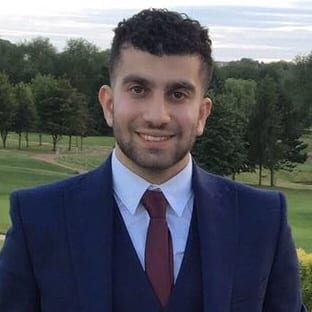As the Russian occupation of Syria enters its seventh year and with the Syrian crisis no longer in the news, serious questions must be asked. Vladimir Putin’s intervention on behalf of his ally Bashar Al-Assad may have offered Al-Assad a short term victory, but moving forward, both lose out. At the same time however, the West has lost out too, its empty rhetoric coming to nothing, as the international community failed the Syrian people.
Putin’s intervention in late September 2015 was never meant to be a long term fix; there were concerns that Al-Assad’s position was genuinely weakened, so what was originally short term intervention has become a six-year occupation that has no sign of it ending. Russia is essentially stuck in Syria. To abruptly leave would be an admission of defeat, no matter how Putin spins the fact that Al-Assad is still in power. The Syrian president’s hold on power is tenuous, and nowhere near as strong as it was pre-March 2011. Any indication of Russia abandoning Al-Assad would embolden even fragmented opposition groups, and threaten the regime.
Similar to the invasion and annexation of Crimea in 2014, Syria is essentially being used by Russia to score political points in a new cold war. The occupation of Syria is a way of showing the international community that Russia – as a great power – is “back”, and that its weaker days of the 90s and early 2000s are behind it. The fact that Russia has a veto on the UN Security Council (an organisation that is fundamentally broken) is crucial here too; it can shield the regime from any wrongdoing, binding it ever closer and making it even more reliant. Weapon sales and the use of warm water ports are also benefits Russia enjoys as a result of its occupation and shielding of the regime.
The statement “a diplomatic solution must be sought to end the Syrian crisis” is often repeated, but is now completely meaningless. A diplomatic solution cannot be achieved unless there is genuine political will; this looks like it is in extremely short supply right now.
Any help for Syria has to go beyond humanitarian aid. This cannot simply be used by politicians and policy makers to soothe their consciences. The root of the problem, the disease, has to be tackled and that is the Assad regime, which has destroyed the state over the last decade. Countless conferences and meetings failed; the longer the crisis continued, the more the appetite shrunk amongst the international community who quickly became preoccupied with a variety of internal and regional political problems. Fighting Daesh isn’t less important as fighting Al-Assad, with the former’s creation and support being the result of the latter’s brutality and a way in which all protesters were tarnishes with the label “terrorist”. But unfortunately, Russia simply had to state that its airstrikes and intervention were aimed at eradicating Daesh (evidence indicates that it was not), and the response was muted.
READ: The US has given the green light to normalisation with Syria
The Syrian uprising is not over yet. Whilst the narrative slips away from the news, recent protests in Dara’a serve as a reminder that the people of Syria are still taking to the streets and are still demanding justice and accountability for their perpetrators. A possible step for the West to take is to re-engage with Turkey. As a neighbouring state on the doorstep of Europe, it would be prudent to have Turkey onside and distance itself from Russia; essentially an occupying power here.
Efforts to legitimise the regime must be resisted at all costs. The steps that Gulf states and other Arab states who in the past were staunchly opposed (Jordan being a notable example) have been making in rebuilding their ties with Al-Assad are deeply concerning. Al-Assad must remain an international pariah. It is deeply concerning too, that international organisations such as the WHO and Interpol are recognising the legitimacy of Al-Assad. Ultimately, the UN never stripped the Assad regime of Syria’s seat either.
Russia is ultimately part of the problem, not the solution. No matter how it may run a protection racket with Al-Assad, destroying the state but then claiming it is the only power that can defend and rebuild it, any efforts to accept Russian hegemony cannot stand.
The EU should adopt policies similar to that of the Caesar Protection Act to those who finance and support the Syrian regime. Seeing Russian figures at the top of that list would be no surprise whatsoever. Moreover, holding perpetrators of the last ten years accountable, has to be considered.
Where there is political will, there is a way. The Middle East is said to be a troubled place, but the longer the Assad regime remains, the less likely it is that other problems in the region – including Iranian aggression and the spill over crises – will be solved.
The views expressed in this article belong to the author and do not necessarily reflect the editorial policy of Middle East Monitor.

![Russian soldiers stand by an armoured personnel carrier (APC) in the Syrian rebel-held Daraa al-Balad district of the southern city of Daraa on 6 September 2021 [SAM HARIRI/AFP via Getty Images]](https://i0.wp.com/www.middleeastmonitor.com/wp-content/uploads/2021/10/GettyImages-1235089995-e1633686599204.jpg?fit=920%2C611&ssl=1)







